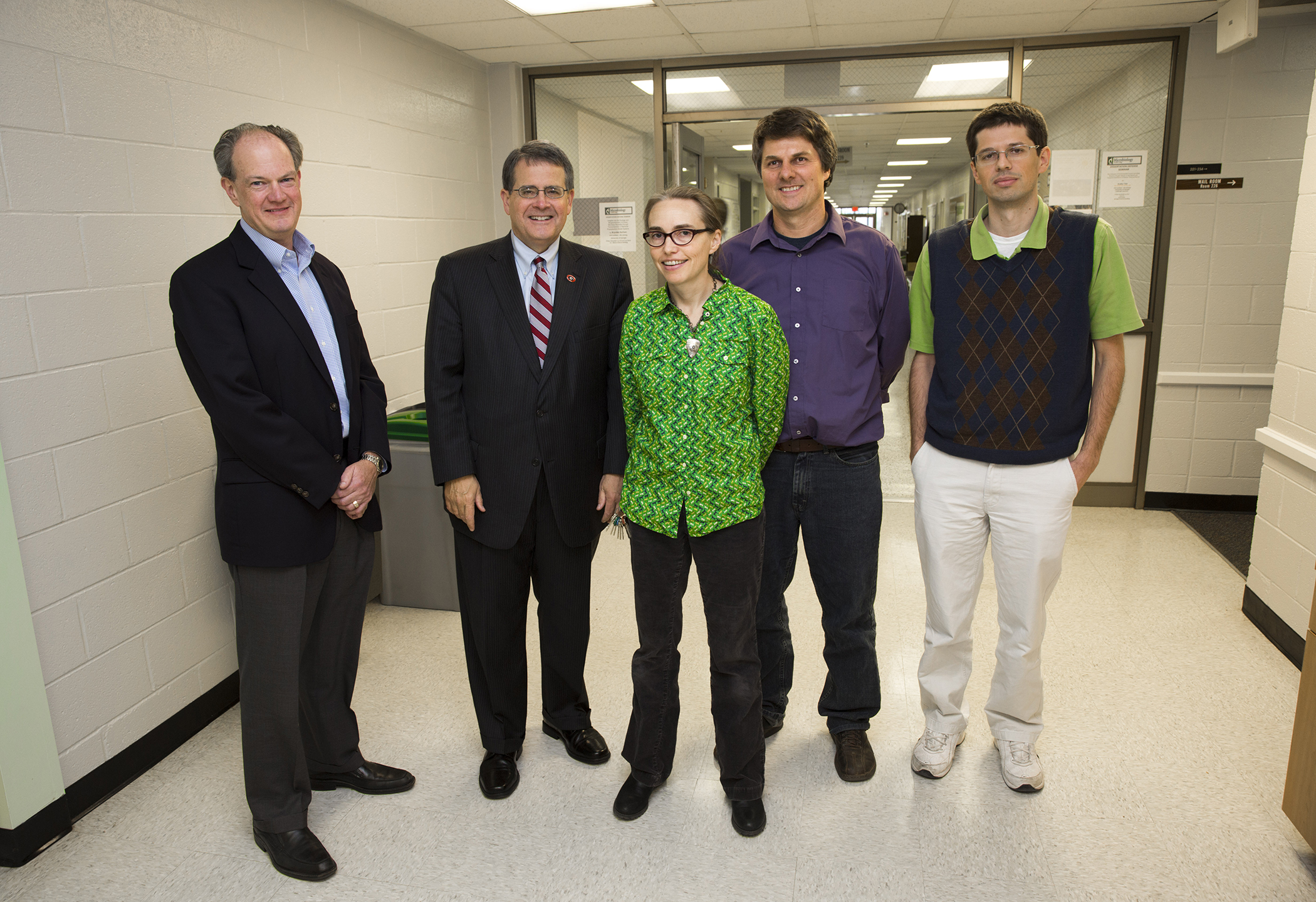Athens, Ga. – A group of scientists led by the University of Georgia’s Samantha Joye has received a new grant to continue its studies of natural oil seeps and to track the impacts of the BP/Deepwater Horizon oil spill on the Gulf of Mexico ecosystem.
The project, known as ECOGIG-2 or “Ecosystem Impacts of Oil and Gas Inputs to the Gulf,” is a collaborative, multi-institutional effort involving biological, chemical, geological and chemical oceanographers. The research team has worked in the Gulf since the weeks following the 2010 Macondo well blowout.
The three-year, $18.8 million dollar ECOGIG-2 program was funded by the Gulf of Mexico Research Initiative, or GoMRI.
“I am so thrilled that the ECOGIG-2 research program was selected for funding by the GoMRI research board,” said Joye, the UGA Athletic Association Professor of Arts and Sciences and a professor of marine sciences. “Our work will explore the basics of oil and gas cycling at natural seeps, discern the impacts of chemical dispersants on microbial populations and their activity and on the fate of discharged hydrocarbons, use sophisticated instrumentation and physical and biogeochemical models to track hydrocarbon transport and continue to document recovery of deep-water ecosystems from the Macondo blowout.”
Research funded by GoMRI focuses on improving the fundamental understanding of the implications of events such as the Macondo well blowout, and on developing improved oil spill mitigation methods, oil and gas detection, characterization and remediation technologies.
The ECOGIG-2 program was one of 12 groups, or consortia, funded by GoMRI following a competitive merit review process. These 12 consortia will receive a total of $140 million to support research to be carried out from 2015 through 2017.
“Dr. Joye’s research is of international consequence, and we are pleased that the size and scope of this grant will allow her to expand on this very important work,” said UGA President Jere W. Morehead.
ECOGIG-2’s mission is to understand the environmental signatures and impacts of natural seepage versus that of abrupt, large hydrocarbon inputs on coupled benthic-pelagic processes in deep-water ecosystems in the Gulf of Mexico, and to chart the long-term effects and mechanisms of ecosystem recovery from the Macondo well blowout.
The ECOGIG-2 team conducts process-oriented experiments at sea and in the laboratory to reveal the microbial and abiotic processes that mediate petroleum hydrocarbon cycling in the Gulf ecosystem, including in-depth studies of the impacts of dispersants on hydrocarbon cycling.
“The ECOGIG-2 research group is conducting some of the most urgent and perhaps most important monitoring and analysis projects ever conducted in the Gulf of Mexico,” said Alan T. Dorsey, dean of the Franklin College of Arts and Sciences. “This crucial new support will help produce a better understanding of the Gulf ecosystems and bolster efforts to secure the economy of the Gulf region by informing our stewardship of its natural mechanisms and processes.”
Others involved in ECOGIG-2 include UGA marine sciences faculty Christof Meile, Renato Castelao and Catherine Edwards as well as Annalisa Bracco and Joe Montoya of the Georgia Institute of Technology.
Additional institutions include the Bigelow Laboratory for Ocean Sciences; University of California, Santa Barbara; Columbia University’s Lamont-Doherty Earth Observatory; Florida State University; Harvard University; University of Maryland; University of North Carolina; Oregon State University; Pennsylvania State University; University of Southern Mississippi; Temple University; University of Texas at Austin and SailDrone.
“This work will have impact that reaches far beyond the Gulf by elucidating how petroleum hydrocarbons are cycled in the oceans under a variety of scenarios, both natural and unnatural,” Joye said.
For more on GoMRI, see http://gulfresearchinitiative.org/. For more on the ECOGIG-2 research project, see http://ecogig.org/.


